When I attended junior high, I took part in an organization called “Future Problem Solving”. Our team’s sponsors presented us with a “hypothetical future situation” with the potential for trouble. We then had to develop a workable solution. I don’t remember the issue we tackled, but it was a lot of fun.
Future Problem Solving is open to students in grades 4-12. Despite the plethora of real-world problems requiring solutions in the 21st century, it doesn’t offer an adult tier. We could use a group of people skilled in an activity designed to enhance “critical thinking and problem-solving skills”.
Tabletop role-playing games provide a way to fill this gap--in particular Shock: Social Science Fiction, a 2006 release from the glyphpress.
I don’t hear a lot about Shock, even in my RPG circles. I only know about it because Eclipse Phase, another science fiction RPG, references it in its bibliography.
Shock is the only RPG I’ve encountered which emulates the thoughtful social examination found in much great sf literature. If you’re looking for an interactive science fiction experience concerned with more than individual characters, this might be the game for you!
So, how does Shock open up social science fiction to interactive play? It uses a “Shock/Issue Grid” to help the players build a world in which the social effects of significant change take center stage:
The rules start out by following H. G. Wells’ advice for writing science fiction: Make a single change to the real world and then explore the consequences.
The group begins by choosing a “Shock”, defined as “…a radical difference between the players’ world and the world in the fiction [they’re] creating…”1 The group could decide that their Shock is “brain-computer interfaces are readily available and affordable.”
Each player then identifies an “Issue” related to the Shock. Issues are “…social and personal concerns the players have and want to address with [the] story…”2 Issues related to the Shock defined above might include information overload, invasion of privacy through computerized telepathy, simulation addiction, etc.
The rest of the grid specifies which player “owns” the Shock and which own each of the issues. The owners get to define how these elements work in the game world. The Grid also lists which Protagonists (see below) will confront the various Issues in the story.
Don’t let the abstract nature of this world-building make you think Shock has no drama. It may do a better job of modeling a traditional story arc than more well known SFRPGs. It accomplishes this with a set of mechanics designed to drive the story forward:
Each player can (but doesn’t have to) control a “Protagonist” (described as a “…character whose actions will determine the nature of the story.”)3 A Protagonist, for instance, might be a hacker, a junkie, or a cop who will have a significant effect on what happens in the game.
Every Protagonist has a “Story Goal” (explained as “…what [a player] want[s] from [their] Protagonist in the foreseeable…future).4 Story Goals can run the gamut from “My character wants to kick his addiction to virtual pornography” to “My character wants to become the best Esports player in the world” and beyond.
Each player also plays the “Antagonist” (“[a] character whose interests are opposite those of the Protagonist”),5 opposing the Protagonist controlled by the player to their right. An Antagonist can be a person, but this is not required. Maybe it’s the addictive simulations the junkie craves, his dealer in illicit material, or the dissatisfaction with his life which drove him to addiction.
This Protagonist-Story Goal-Antagonist structure provides the drama and character arcs for all Protagonists. Each player moves their Protagonist toward their chosen Story Goal, but the player to their left attempts to thwart this progress through their Antagonist. Like a good novel, this leads to conflict in the emergent plot, but unlike a novel, none of the story’s creators know how the various threads of the plot will resolve in the end.
I see Shock as fertile ground for “interrogating the future” in the tradition of Future Problem Solving and well-written science fiction. The Shock/Issue grid defines a “hypothetical future situation”. The players' Protagonists allow them to explore possible “solutions” (approaches to their Story Goal.)
Through their Antagonists, players can stress test one another’s approach by opposing the Protagonists’ efforts. An innovative conflict-resolution system, in which the loser gets extra resources for later use6 (modeling the importance of learning from failure?) lets players run their approaches through successive iterations in pursuit of their Story Goals.
I’m very interested in using Shock to develop a world and a plot for a science fiction story. If any readers want to take part in this collaborative effort, please subscribe to The Cosmic Codex, so I will have your email address, and comment on this article expressing your interest. I’ll reach out with details.
1 “Shock” v1.2, p.18
2 Ibid
3 “Shock” v1.2, p.87
4 “Shock” v1.2, p.22
5 “Shock” v1.2, p.84
6 “Shock” v1.2, p.82



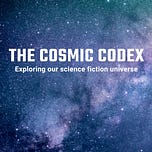



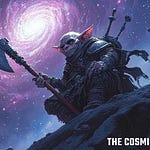



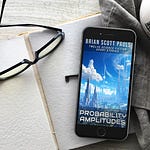
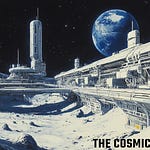

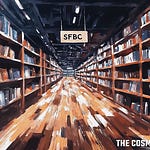
Share this post